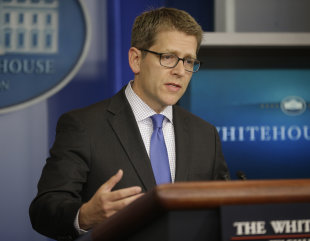Gay and lesbian issues have come to the forefront of American society. Even with the legislative changes occurring at the governmental levels, real societal changes (on any front) will not fully take place until the nation succeeds in building an infrastructure of care or compassion that is sustainable beyond empty rhetoric and unfulfilled promises. The ideal is to develop a supportive culture where the free expression of identity is tolerated and normalized and where fostering a politic of acceptance of all differences is already built into the infrastructure. Such a structure, for starters, must involve the complete eradication of divisions that exist between people because of race, class, gender and sexual orientation. These gains only happen when courageous and outstanding individuals push a particular humanizing social agenda forward, thereby causing ripples of consciousness that (slowly) create a fundamental shift in public attitudes about certain gender-variant minorities on the fringes of society, like many in the LGBT community.
The LGBT community is confronted with a multitude of issues that many heterosexual Americans simply take for granted, such as the ability to marry whomever they wish and having the freedom and right to solemnize those unions to be recognized as such by the government for the people. Many in the LGBT community are, likewise, prisoners of their gendered and sexual identities, rightfully afraid to be who they are in the world lest they not be free from prejudice, ignorance and fear. And yet, many of our religious institutions, the most sacred of institutions of that profess love and acceptance in American life, are the primary source of discriminatory actions against the LGBT community.
Black Americans know a little something about this process. Even so, African Americans have long been concerned and even at odds with the LBGT community's push for civic changes granting them full peoplehood. The notion that gay rights do not compare to the black crusade for civil rights has been the mantra for many African American voices. Many in the black community believe that there is a disjuncture between their struggles for human rights and that of the gay community's struggle for equal rights. For black Americans, "blackness" has been historically casted as a physical marker of irreducible difference with a violent and bloody 400-year-old history of white supremacy. People of the LGBT community, unlike black Americans, do not carry any particular phenotypic marker of obvious difference, save the grossly inaccurate and stereotypical thinking about what constitutes "gayness" in a largely xenophobic society like the U.S. Despite all this, the word "civil" means "of the citizen as an individual." So, then, how can we as a society justify denying gay Americans basic civil liberties, as they are citizens of this republic?
In a fairly recent union, conservative white religions have courted and influenced African Americans and their religiously conservative values and beliefs regarding homosexuality to steer public policy. For example, the California legislative effort for gay marriage was reversed in 2008 when Proposition 8 was passed that proposed an amendment stating that marriage should be only between "a man and a woman." Proposition 8 was largely supported (financially and otherwise) by the Church of Jesus Christ of Latter Day Saints (Mormon Church), which is strongly represented in the western states. The LDS Church specifically targeted the Black Church and black communities in California to garner the necessary support and votes to pass the amendment. The religious right has continued to drive a wedge between black Americans and gay Americans by drawing on black religious thought. And as a result, religiously based ideals are passed off as public policy.
Conservative religious traditions need not accept that men and women participate in homosexual relationships within their house of worship, but they are obligated to be tolerant of the rights of others in this secular society. As Joy-Ann Reid, the editor-in-charge at theGrio.com, stated so provocatively on Sunday's Meet the Press, "The question is whether or not religious institutions can make public (state) policy. ... If the Church is going to make our public policy, then are we any longer a secular state?"
The political ideologies and policy-making of many of our elected officials only hasten the divide by trying to pass off their particular brand or interpretation of Christianity in the legislative process. Such attempts to bring Jesus into the political realm have been met with terrible consequences such as with the institution of slavery. The LGBT community has made significant headway during this presidency, causing Mr. Obama to "come out" himself in public support of same-sex unions (whether political grandstanding or not) when other U.S. presidents have avoided the issue entirely. The countless stories and tragedies of being gay in America have reached the highest office in the land, resulting in prolific legislative changes such as the death of "Don't Ask Don't Tell" and the passing of the "Matthew Shepard Hate Crimes Act." The recent declaration of sexual identity made by 34-year-old current NBA center Jason Collins, the first of its kind in the four major American sports, is a sign that perhaps it's time to move beyond divisions between human populations by engaging public opinion and political process free from the intrusion of conservative Christian ideologies and restrictive prohibitions against the freedom to exist in a world replete with difference to varying degrees.
?
Follow Darron T. Smith, Ph.D. on Twitter: www.twitter.com/DrDarronSmith
"; var coords = [-5, -72]; // display fb-bubble FloatingPrompt.embed(this, html, undefined, 'top', {fp_intersects:1, timeout_remove:2000,ignore_arrow: true, width:236, add_xy:coords, class_name: 'clear-overlay'}); });jon jones rashad evans ufc jones vs evans watergate pregnant man outside lands 2012 lineup beloved ufc results



